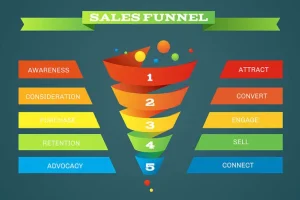
Social media provides small businesses with an effective tool for reaching their target audiences. By engaging customers and starting conversations on these channels, businesses can build trust among customers and brand recognition.
Small business owners may become overwhelmed when trying to implement all of the available social media marketing strategies – often leading to wasted time and not meeting growth objectives.
1. Identify Your Target Audience
Establishing a deep knowledge of your audience is the cornerstone of any marketing strategy, as this enables you to produce content that speaks directly to their needs and increases engagement with your content.
Analysis of demographics, interests, and behaviors will allow you to gain a clear picture of your target audience. For instance, Snapchat and Instagram tend to be popular among younger audiences while Facebook is widely utilized by older generations.
Surveys can also provide a great way to inquire into customer experiences with your business, with data derived from customer relationship management systems being used for analysis of results.
2. Create a Unique Identity
Brand recognition is key to social media success. Without it, your target audience would have no knowledge of you or what you offer.
Create content that tells the unique tale of your business, such as milestones achieved or noteworthy accolades received, or simply fun facts about its history.
Make an effort to post original content daily and stay abreast of trends – for instance when TikTok first launched, many brands were reluctant to use it but now it can be an invaluable asset in your arsenal.
3. Publish Regular Content
Content creation and publication on a regular basis is essential for building audiences and increasing engagement, especially among small businesses. Aiming for weekly updates should be pursued where possible.
Dependent upon the platform, content creation may include images, status updates, videos and links. It is also crucial to create different types of posts in order to reach more audiences.
Performing competitor analysis is an effective way of understanding more about your target audience and the types of content they engage with, which enables you to create unique pieces with lasting appeal that attract a strong following.
4. Engage With Your Audience
Social media reaches close to three billion people every month, making it an effective marketing tool that can help small businesses identify and connect with their target audiences. By developing well-planned strategies and crafting relevant content, they can build brand recognition while also generating leads that turn into sales.
Small businesses should make an effort not to post on all platforms at once, instead prioritizing those most used by their target audiences and creating systems within their workflows to ensure consistent updates.
5. Collaborate With Other Brands or Influencers
Since organic reach on social media is declining, small businesses must get creative when approaching their marketing efforts. A solid strategy will drive traffic, generate leads and expand brand recognition.
Setting SMART goals is an effective way of making sure that your strategies are attainable and relevant, and to measure and optimize them as necessary. Monitoring performance allows you to track success as well as optimize strategies accordingly.
No matter whether you employ the services of a B2B SaaS content writing agency or have assembled your own marketing team, these tips can help you craft an effective social media marketing strategy which produces results.
6. Use Paid Advertising
Paid advertising can also help your products or services reach more potential customers. Use pay-per-click ads on platforms such as Instagram, Facebook and Twitter to promote them effectively.
Increase reach or engagement by boosting posts. And with tools such as Post and Account Analytics from Later, you can evaluate metrics such as social share of voice, brand mentions, click-through rates to evaluate which strategies are working and which aren’t.
To maximize the results of your Social Media Marketing efforts, set SMART goals, research competitors and devise a content schedule with consistency. Following these guidelines can help your small business realize its full growth potential on today’s most widely-used digital platforms!
7. Monitor Your Performance
Brand awareness is a central goal of social media marketing, offering businesses a great way to build it up by creating brand recognition among consumers and increasing public perception of your business.
Social media provides an ideal opportunity for nurturing customer relationships by publishing educational posts and responding to any inquiries or comments posted by customers. You can also experiment with various formats of content to see what resonates best with your target market.
Be sure to establish SMART goals for your marketing initiatives – this will allow you to track progress over time and ensure future strategies are more successful.








